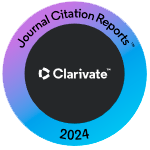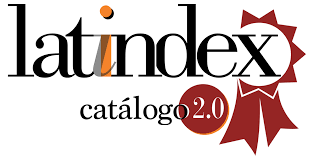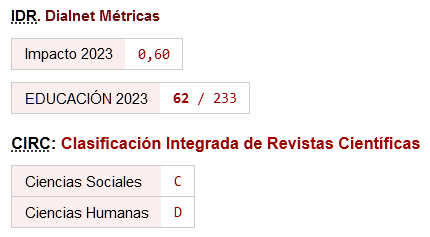Building critical teachers through the biographical-narrative method
DOI:
https://doi.org/10.46661/ijeri.4143Keywords:
Narrative, Biographical-narrative Method, Qualitative methodology, Teaching, Teachers, Student teaching, AssessmentAbstract
The narrative biographical method is the focus of this qualitative research. The objective is to show the validity of this method as a training strategy for future teachers. A strategy that improves the capacity of critical analysis and with that, of reformulation of the budgets of the school culture. The sample is composed of 383 students of the Master's Degree in Secondary Education Teaching of the University of Extremadura (Spain). When applying this method in teacher training programs, there is an alternative to traditional research, training and social action. As a result, three resources are cultivated to train future teachers at the same time; As the students learn the method, they carry out an evaluation process, which is useful for their training and future competence as professionals. Therefore, the students themselves acquire a heuristic and hermeneutical process to evaluate and become researchers of their own professional prospective and experience.
Downloads
References
Abbott, I., Rathbone, M., & Whitehead, P. (2019). The Transformation of Initial Teacher Education: The Changing Nature of Teacher Training. London: Routledge.
Abrandt, M. & Hammar, E. (2009). Learning for Professional life: Student Teachers´ and Graduate Teachers´ Views of Learning, Responsibility and Collaboration. Teaching and Teacher Education, 25 (8), 991-999.
Álvarez, Z., & Porta, L. (2012). Caminos de indagación sobre la buena enseñanza: aproximación biográfico-narrativa en educación superior. Revista de Educación, 4 (4), 75-88.
Álvarez, Z., Porta, L., & Sarasa, M. C. (2010). La investigación narrativa en la enseñanza: las buenas prácticas y las biografías de los profesores memorables. Revista de Educación, 1, 159-179.
Anspal, T., Leijen, Ä. & Löfström, E. (2019). Tensions and the teacher’s role in student teacher identity development in primary and subject teacher curricula. Scandinavian Journal of Educational Research, 63(5), 679-695.
Asihvif (2005). Livret de présentation. Paris: ASIHVIF.
Atkinson, P., & Delamont, S. (2006). Rescuing narrative from qualitative research. Narrative Inquiry, 16 (1), 164–172.
Ayuste, A. y Trilla, J. (2005). Pedagogía de la modernidad y discursos postmodernos sobre la educación. Revista de Educación, 336, 219-248.
Bassi, J. E. (2014). Hacer una historia de vida: decisiones clave durante el proceso de investigación. Athenea Digital. Revista de Pensamiento e Investigación Social, 14 (3), 129-170.
Bolívar, A. (2016). Conjugar lo personal y lo político en la investigación (auto) biográfica: nuevas dimensiones en la política educacional. Revista Internacional de Educação Superior, 2 (2), 341-365.
Bolívar, A. (2007). La formación inicial del profesorado de secundaria y su identidad profesional. Estudios sobre educación, (12), 13-30.
Bolívar, A. (2002). "¿De nobis ipsis silemus?": Epistemología de la investigación biográfico-narrativa en educación. Revista electrónica de investigación educativa, 4 (1), 1-26.
Bolívar, A.; Domingo, J. & Fernández Cruz, M. (2001). La investigación biográfico-narrativa en educación. Enfoque y metodología. Madrid: La Muralla.
Booth, T. (1996): Sounds of Still Voices: Issues In The Use of Narrative Methods With People Who Have Learning Difficulties, in Barton, L. (Ed.). Disability and Society. Emerging Issues and Insights (pp. 237-255). New York: Logman Publishing.
Bullough, R. V. (2011). Ethical and Moral Matters in Teaching and Teacher Education. Teaching and Teacher Education, 27 (1), 21-28.
Christodoulou, M., & Spyridakis, M. (2016). Upwardly Mobile Working-Class Adolescents: A Biographical Approach On Habitus Dislocation. Cambridge Journal Of Education, 47 (3), 315-335.
Connelly, F. M. & Clandinin, D. J. (1995). Relatos de experiencia e investigación narrativa, in Larrosa, J. et al (Eds.). Déjame que te cuente. Ensayos sobre narrativa y educación. Barcelona: Laertes.
Cooke, S., & Carr, D. (2014). Virtue, Practical Wisdom and Character in Teaching. British Journal of Educational Studies, 62 (2), 91-110.
Cubero Pérez, R., Cubero Pérez M., Santamaría Santigosa, A., de la Mata Benítez, M. L., Ignacio Carmona, Mª J. & Prados Gallardo, Mª M. (2008). La educación a través de su discurso. Prácticas educativas y construcción discursiva del conocimiento en el aula. Revista de Educación, 346, 71-104.
Demetrio, D. (2003). Ricordare a scuola. Fare memoria e didattica autobiografica. Roma: Laterza.
Dominicé, P. (2002). L ́histoire de vie comme processus de formation. Paris: L ́Harmattan.
Dominicé, P. (2000). Learning from Our Lives. Using Educational Biographies with Adults. San Francisco: Jossey-Bass.
Flores, G., Porta, L., & Martín-Sánchez, M. (2014). Hermenéutica y narratividad en el discurso cualitativo de la educación. Entramados: educación y sociedad, 1 (1), 69-81.
Garbula, J. M. (2015). Towards Micro-History–New Look at the Family History. The New Educational Review, 39, 63-72.
García-Bravo, W. & Martín-Sánchez, M. (2013). Hermeneutics and Pedagogy: Educational Practice In The Discourse On Education. Pulso: Revista De Educación, 36, 55-78.
Gil, F., & Jover, G. (2000). Las tendencias narrativas en pedagogía y la aproximación biográfica al mundo infantil. Enrahonar: quaderns de filosofía, 31, 107-122.
Goodson, I. (2003). Hacia un desarrollo de las historias personales y profesionales de los docentes, Revista Mexicana de Investigación Educativa. México: Consejo Mexicano de Investigación Educativa, 19. Septiembre/diciembre.
Goodson, I & Sikes, P. (2001). Life History Research in Educational Settings. Buckingham: Open University Press.
González Monteagudo, J. (2009). Historias de vida y teorías de la educación: tendiendo puentes. Cuestiones pedagógicas: Revista de ciencias de la educación, 19, 207-232.
Grecu, A. L., Hascher, T. & Hadjar, A. (2019). Teachers’ images of the ideal student as a marker for school culture and its role in school alienation during the transition from primary to secondary education in Luxembourg. Studia paedagogica, 24(2), 85-108.
Hargreaves, A. (1994). Changing Teachers, Changing Times: Teachers' Work And Culture In The Postmodern Age. New York: Teachers College Press.
Herrera-Pastor, D. (2018). Investigación biográfica y educación inclusiva. Una innovación docente universitaria de enorme potencial. IJERI: International Journal of Educational Research and Innovation, (10), 211-231.
Hollstein, B. (2019). What autobiographical narratives tell us about the life course. Contributions of qualitative sequential analytical methods. Advances in Life Course Research, 41, 1-10
Hornillo, E., & Sarasola, J. L. (2003). El interés emergente por la narrativa como método en el ámbito socio-educativo: el caso de las historias de vida. Portularia, 3, 373-382.
Inglehart, R. (2000). Globalization and Postmodern Values. The Washington Quarterly, 23 (1), 215-228.
Inglehart, R. (1987). Value Change in Industrial Societies. The American Political Science Review, 81(4), 1289-1319.
Kareepadath, V. P. (2018). Critical pedagogy in practice: A case study from Kerala, India. Journal of Pedagogy, 9(2), 33-54.
Korthagen, F. A. (2004). In Search of The Essence of a Good Teacher: Towards A More Holistic Approach In Teacher Education. Teaching and Teacher Education, 20 (1), 77-97.
Litwin, E. (2012). El oficio de enseñar. Condiciones y contextos. Buenos Aires: Paidós.
Maliandi, R. (2004). Ética: conceptos y problemas. Buenos Aires: Biblos.
Marcelo, C. & Estebaranz, A. (1999). Cultura escolar y cultura profesional: los dilemas del cambio. Educar, 24, 47-69.
Martín-Sánchez, M. (2014). Teacher Training In The Postmodern Era: A Narrative Perspective. Revista De Educación, 7, 75-92.
Mèlich, J. C. (2008). Antropología narrativa y educación. Teoría de la Educación. Revista Interuniversitaria, 20, 101-124.
Merrill, B. (1999). Gender, Change, and Identity: Mature Women Students in Universities. Aldershot: Ashgate.
Moral, M. V. (2009). Escuela y posmodernidad: análisis posestructuralista desde la psi- cología social de la educación. Revista Iberoamericana de Educación, 49, 203-222.
Nghia, T. L. H., & Le, K. T. (2019). Teacher Identity Development of Non-Education-Degree Individuals: A Narrative Study. In Examining the Teacher Induction Process in Contemporary Education Systems (pp. 287-312). IGI Global: USA.
Ojeda, M. C. (2006). Características de la conformación de la identidad del profesor de nivel medio desde una perspectiva biográfica. Proceso de adquisición de la profesión y rasgos de su identidad en el trayecto de formación y los inicios laborales. Educación, 500, 1-4.
Pérez, A. I. (1998). La cultura escolar en la sociedad neoliberal. Madrid: Ediciones Morata.
Pérez-García, M. P., Latorre-Medina, M. J. & Blanco-Encomienda, F. J. (2015). Fostering Professional Ethical Competence During Teacher Training Practice. Pedagogika, 118 (2), 5-17.
Perrenoud, P. (2001). La formación de los docentes en el siglo XXI. Revista de Tecnología educativa, 14 (3), 503-523.
Pontes, A., Ariza, L., & Del Rey, R. (2010). Identidad profesional docente en aspirantes a profesorado de enseñanza secundaria. Psychology, society & education, 2(2), 49-60.
Porta, L., Álvarez, Z., & Yedaide, M. M. (2014). Travesías del centro a las periferias de la formación docente. Revista Mexicana de Investigación Educativa, 19 (63).
Rodríguez-Gutiérrez, P., Muñoz-Fernández, G. A., & Luque-Vílchez, M. (2019). Estudio exploratorio sobre el panorama actual de la formación inicial del profesorado de secundaria en España. IJERI: International Journal of Educational Research and Innovation, 11, 169-184.
Ruíz, C. (2010). La educación en la sociedad postmoderna: desafíos y oportunidades. Revista Complutense de Educación, 21(1), 173-188.
Ruokonen-Engler, M. K., & Siouti, I. (2016). Biographical Entanglements, Self-Reflexivity, and Transnational Knowledge Production. Qualitative Inquiry, 22 (9) 745–752.
Skidmore, L., Daley, S., Sydnor, J. & Davis, T. R. (2019). Imagining my ideal: a critical case study of digital storytelling as reflective practice. Reflective Practice, 20(2), 143-159.
Suárez, D. H. (2007). Docentes, narrativa e investigación educativa. La documentación narrativa de las prácticas docentes y la indagación pedagógica del mundo y las experiencias escolares, en I. Sverdlick, (Ed.). La investigación educativa. Una herramienta de conocimiento y acción (pp. 71-110). Buenos Aires: Novedades Educativas.
Taylor, S. (2006). Narrative as Construction and Discursive Resource. Narrative Inquiry, 16 (1), 94–102.
Tyson, R. (2016). Pedagogical Imagination and Practical Wisdom: The Role Of Success-Narratives In Teacher Education And Professional Development. Reflective Practice, 17 (4) 456-471.
Viedo Kich, B. & Martins, A. C. (2019). What is biographical research and why is this method important in teachers’ and professors’ formation? Research, Society and Development, 8(7), 1-11.
Viñao, A. (2002). Sistemas educativos, culturas escolares y reformas: continuidades y cambios (Vol. 10). Madrid: Ediciones Morata.
West, L. (1996). Beyond Fragments: Adults, Motivation and Learning: A Biographical Analysis. London: Taylor & Francis.
Zatarain, M. (2015). Educación, crisis y posmodernidad. Revista Vínculos, 6, 207-230.
Downloads
Published
How to Cite
Issue
Section
License
Copyright (c) 2020 José M. García-Sánchez, Jorge Cáceres-Muñoz, Miguel Ángel Martín Sánchez

This work is licensed under a Creative Commons Attribution-NonCommercial-NoDerivatives 4.0 International License.











